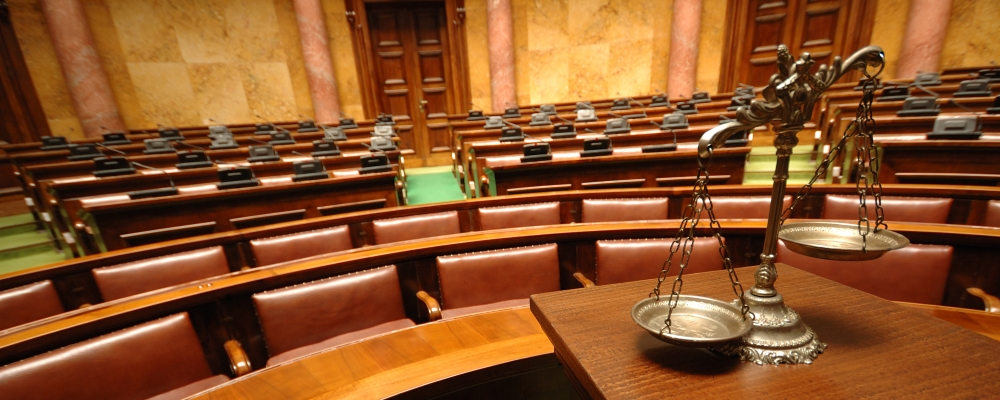Litigation is the process you engage in when you are involved in civil legal proceedings, for example a personal injury claim or a commercial dispute. An important part of litigation is the serving of a Notice for Particulars, and the consequent Replies to Notice for Particulars.
Notice for Particulars
The Notice for Particulars is a series of questions that the Defendant will send to the Plaintiff in order to see what case he will have to meet and to ascertain the details of the alleged wrongdoing, the circumstances giving rise to the claim, details of the injury/damage, and so forth. It forces the Plaintiff to set out the exact details of his claim.
The formal legal position of the parties is set out in Pleadings and the Pleadings combined with the Particulars allows a party to the proceedings to see in broad outline the case it will have to meet at trial.
In recent years, however, the extensive, broad, and sometimes oppressive nature of the Particulars being sought have been considered by the Courts as some of the questions sought appeared to be irrelevant to the issues at hand.
Armstrong v Moffatt [2013] IEHC 148
The High Court considered the question of Particulars in this case which was a personal injury action. Section 11 of Civil Liability and Courts Act 2004 allows the Defendant in a personal injury action to request further information, including
(a) particulars of any personal injuries action brought by the plaintiff in which a court made an award of damages,
(b) particulars of any personal injuries action brought by the plaintiff which was withdrawn or settled,
(c) particulars of any injuries sustained or treatment administered to the plaintiff that would have a bearing on the personal injuries to which the personal injuries action relates, and
(d) the name of any persons from whom the plaintiff received such medical treatment,
Two of the defendants in Armstrong v Moffatt sought particulars of information over and above what was provided for in section 11 above. The Plaintiff’s solicitor refused the request and pointed to section 11 as the extent of his client’s obligation and the High Court was asked to determine the issue.
High Court
The High Court firstly stated that the Civil Liability and Courts Act 2004 did not alter the general position arising from the Rules of the Superior Courts. Order 19 deals with pleading generally in the Superior Courts and states:
7. (1) A further and better statement of the nature of the claim or defence, or further and better particulars of any matter stated in any pleading, notice or written proceeding requiring particulars, may in all cases be ordered, upon such terms, as to costs and otherwise, as may be just.
(2) Before applying under this rule to the Court a party may apply for particulars by letter. The costs of each letter and of any particulars delivered pursuant thereto shall be allowable on taxation. In dealing with the costs of any application for particulars, the provisions of this paragraph shall be taken into consideration by the Court.
(3) Particulars shall not be ordered under this rule to be delivered before defence or reply, as the case may be, unless the Court shall be of opinion that they are necessary or desirable to enable the defendant or plaintiff, as the case may be, to plead or ought for any other special reason to be so delivered.
From this Judge Hogan held that particulars shall be ordered if it is “just” to do so-that is, in the interest of fair procedures, and to ensure a party will not be taken by surprised by the case he has to meet at trial.
However, he went on to say that Courts should be more prepared to refuse requests for particulars that are oppressive and indiscriminate and, possibly, an abuse of process. He referred also to the fact that the Oireachtais had set out in section 10 of Civil Liability and Courts act 2004 how a personal injuries claim should be pleaded and if this was done correctly the need for further extensive replies to particulars should be the exception, not the rule.
In this case Judge Hogan struck out particulars which fell outside of section 11. He also commented that even though the indiscriminate use of excessive particulars was curtailed by the Civil Liability and Courts Act 2004 in respect of personal injury claims there was no brake put on such requests in other types of case.
Conclusion
Notices for Particulars should be used to establish, in broad outline, the case the defendant has to meet at trial. Anything over and above this should be carefully considered by both parties because there is a risk of such requests being struck down by the High Court with consequent costs implications.
As Judge Hogan suggested,
Perhaps, accordingly, what is called for is a more discriminating approach on the part of the general legal community to the question of particulars which avoids the prolix, the unnecessary and the irrelevant and which opts instead for the well placed question which genuinely clarifies a matter which actually is contained in the pleadings. In this – as in much else in litigation – the fox is more likely to prevail than the lion.
Useful resources:
- S.I. No. 15/1986 – The Rules of the Superior Courts
- Rules of the Superior Courts on Courts Service website (easier to navigate than the SI above)
- Statutory Instrument No. 254 of 2016 (The Rules of the Superior Courts (Conduct of Trials) 2016)
- Statutory Instrument No. 255 of 2016 (The Rules of the Superior Courts (Chancery and Non-Jury Actions: Pre-Trial Procedures) 2016)
